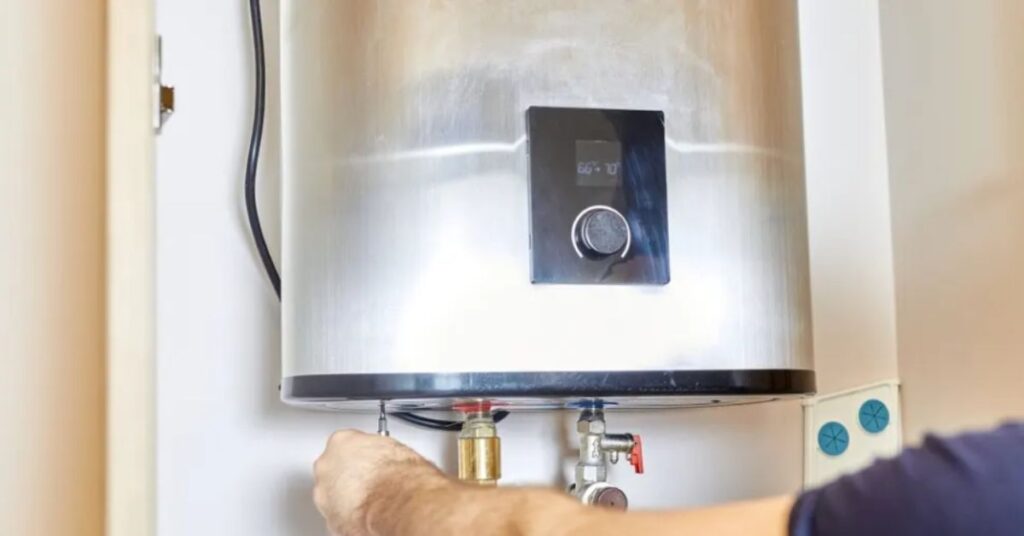Nothing beats having a reliable source of hot water. Though traditional tank water heaters have their place, they often come with drawbacks that end in water heater repair in Surprise, AZ. Fortunately, tankless water heaters have grown in popularity as a viable alternative sans the drawbacks.
Let’s unpack how tankless water heaters operate, their benefits, and what you should consider when thinking about making this upgrade for your home.

What Are Tankless Water Heaters?
A tankless water heater provides hot water on demand. Unlike traditional models that store hot water in a tank, tankless units heat water as it flows through the system. Once installed, you can enjoy a continuous supply of hot water without the anxiety of running out mid-shower.
How Do They Work?
Tankless water heaters employ powerful heating elements or gas burners to raise the water temperature rapidly. Here’s how they work:
- Activation: Cold water travels through a pipe into the unit when you turn the heater on.
- Heating: The heating element, whether electric or gas, activates, heating the water as it flows through.
- Delivery: The hot water is delivered directly to your faucet or appliance. You will have instant access to hot water almost immediately after a water heater installation whenever you need it.
The instant heating truly sets tankless water heaters apart from their traditional counterparts. This alone makes them increasingly popular among homeowners.
How Does Using A Tankless Water Heater Benefit Me?
Switching to a tankless water heater can improve your life at home in many ways. They offer several advantages, including:
- Endless Hot Water Supply: One of the standout features of tankless water heaters is their ability to provide a virtually limitless supply of hot water. No more running out of hot water—you’re guaranteed to have some available for showering, washing dishes, or doing laundry.
- Energy Efficiency: Tankless water heaters are designed to be more energy efficient than traditional systems. They heat water on demand, meaning there’s no energy wasted on keeping a full tank hot. This can lead to significant savings on your utility bills. Depending on your usage patterns, you can get up to 30% more energy efficiency when you switch to tankless models.
- Space Savings: Tankless water heaters can be a fantastic solution if space is limited. Their compact design allows them to be installed in various locations, freeing up valuable space.
- Longer Lifespan: Typically, tankless water heaters outlast traditional models. While a conventional water heater may need replacement every 10 to 15 years, tankless units can serve you well for 20 years or more with water heater maintenance from an expert. This longevity adds even more value.
- Reduced Risk of Water Damage: Traditional tank heaters come with the risk of leaks and bursts, which can lead to significant water damage in your home. Because tankless units don’t store water, the chance of leaks is greatly reduced. This aspect can provide considerable peace of mind for homeowners.
What Should I Know Before Making The Switch?
While the advantages of tankless water heaters are appealing, there are some factors to keep in mind before making a decision. Understanding these can help you select the right system for your needs.
- Initial Cost: Tankless water heaters are expensive compared to traditional units. However, the savings on energy bills and their longer lifespan might justify the initial investment. Assess your budget and weigh the long-term benefits against these upfront costs.
- Flow Rate: Think about your household’s hot water needs. Tankless systems have specific flow rates, measured in gallons per minute (GPM). If you have a large family that frequently uses multiple hot water sources simultaneously, you may need multiple units or a larger-capacity model to keep everyone happy.
- Installation Requirements: Choosing a tankless model for a water heater replacement may require additional plumbing or electrical work. This is especially true if you’re upgrading from a traditional unit. Consult with a professional plumber to evaluate your home’s compatibility and get a detailed estimate of installation costs.
Switching to a tankless water heater is a boon to your home’s hot water availability. With several benefits they offer, they are a worthy investment that lends to a more efficient and convenient lifestyle.






